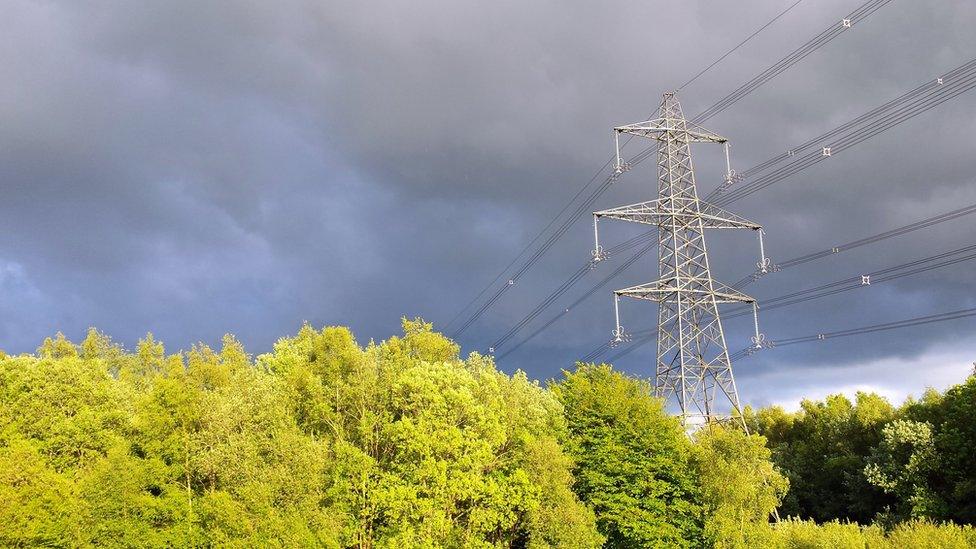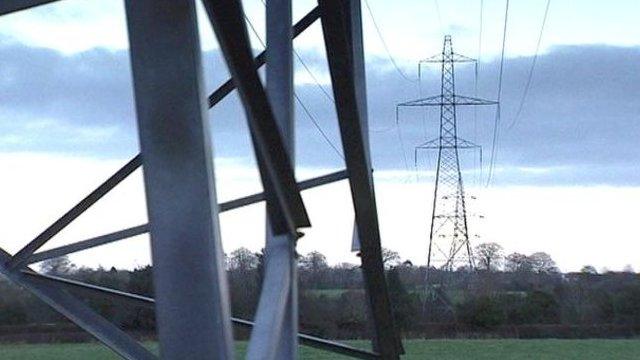Northern Ireland-Republic energy project quashed by court
- Published
- comments

The project will mean about 100 new pylons in Northern Ireland
Planning permission for a new £200m cross-border energy project has been quashed in the High Court.
The Department for Infrastructure (DfI) conceded a legal challenge on Friday.
But the planning application is expected to be reconsidered soon by the senior official in the department.
The official will be able to make a more legally certain decision in light of new legislation passed at the end of last year.
That legislation gave civil servants more legal clarity to make decisions in the absence of executive ministers.
Construction Employers Federation managing director John Armstrong said it was "highly regrettable" that the existing approval was quashed.
'It is now critical that the department utilise the powers within the Northern Ireland (Executive Formation and Exercise of Functions) Act to advance a new planning approval for the project as soon as possible," he said.
The interconnector is a joint project between the System Operator for Northern Ireland (SONI) and EirGrid in Ireland.
Robin McCormick, general manager of SONI, said that the planning applications met all policy requirements and were approved after a thorough planning and consultation process.
"With the introduction of new legislation, by the Secretary of State for Northern Ireland in November 2018, which empowers permanent secretaries to take key decisions, we are hopeful that the planning applications can be re-determined by DfI without delay," he said.
Opposition
The link-up between the two power grids has been long delayed, with environmental opposition to pylons between counties Tyrone and Meath.
The project, which already has planning approval in the Republic of Ireland, was estimated to take about three years to become operational.
It will involve pylons for 85 miles (138km) of overhead cables and mean about 100 new pylons in Northern Ireland.
Opponents had campaigned for cables to be put underground for health and environmental reasons, but this was dismissed as being too expensive.
But business organisations back the interconnector, arguing it will reduce costs and ensure Northern Ireland has the supply to meet demand in years to come.
- Published22 August 2017
